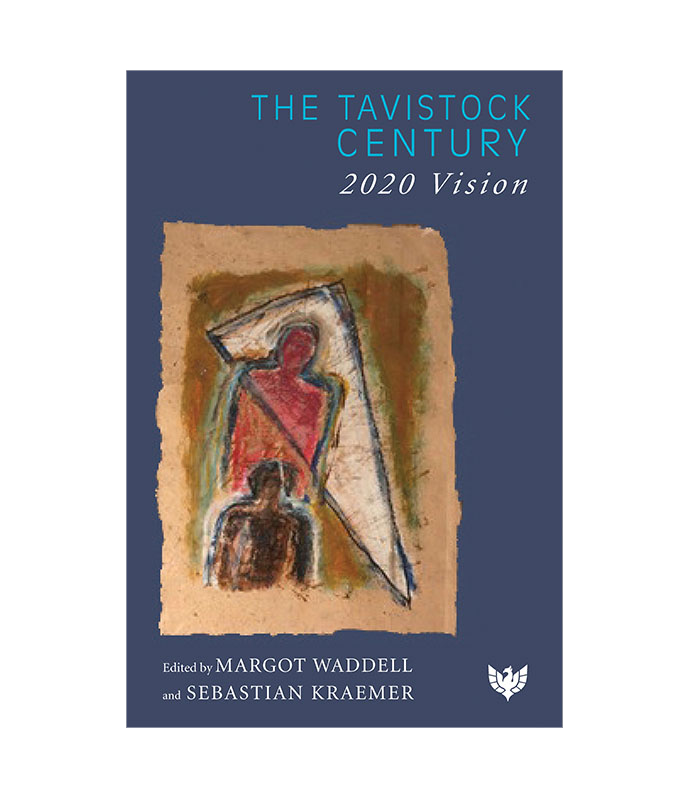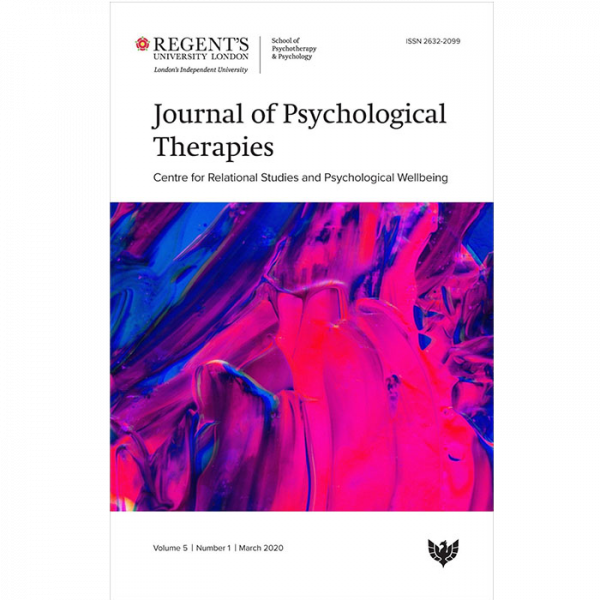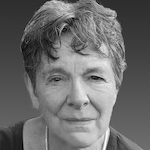Preface by Margot Waddell
Foreword: The Tavistock enigma by Anton Obholzer
Part I
The Tavistock legacy
CHAPTER ONE
Challenge, change and sabotage
Anton Obholzer
CHAPTER TWO
What lies beneath
James Astor
CHAPTER THREE
Psychoanalysis, social science, and the Tavistock tradition
David Armstrong and Michael Rustin
CHAPTER FOUR
Research at the Tavistock
Michael Rustin and David Armstrong
CHAPTER FIVE
“Mummy’s gone away and left me behind”
James Robertson at the Tavistock Clinic
Mary Lindsay
CHAPTER SIX
The Tavistock Institute of Medical Psychology, 1920–2020
Brett Kahr
CHAPTER SEVEN
John Bowlby at the Tavistock Clinic
Margaret Rustin
CHAPTER EIGHT
Balint Groups
Andrew Elder
CHAPTER NINE
Alexis Brook in primary care
Andrew Elder
CHAPTER TEN
Extending the reach of the “talking cure”
Margaret Rustin
Part II
Pregnancy and under 5s
CHAPTER ELEVEN
The psychopathology of publications concerning reactions to stillbirths and neonatal deaths
Sandy Bourne
CHAPTER TWELVE
Parent–infant psychotherapy at a baby clinic
Dilys Daws
CHAPTER THIRTEEN
Service for under-fives in the child and family department at the Tavistock: short-term applications of psychoanalytic practice and infant observation
Lisa Miller
Part III
Children and Adolescents
CHAPTER FOURTEEN
Child Guidance Training Centre 1929–1984
Juliet Hopkins
with additional material from Marcus Johns, Judith Trowell and Gillian Miles
CHAPTER FIFTEEN
Gloucester House: a story of endurance, inspiration, and innovation
Nell Nicholson
with added material from Gillian Miles and Marcus Johns, together with his addendum
CHAPTER SIXTEEN
A foothold in paediatrics
Sebastian Kraemer
CHAPTER SEVENTEEN
Early psychoanalytic approaches to autism at the Tavistock
Maria Rhode
CHAPTER EIGHTEEN
Eating Disorders Workshop—Tavistock Adolescent Department
Gianna Williams
CHAPTER NINETEEN
The creation of a service for children and adolescents facing gender identity issues
Domenico di Ceglie
CHAPTER TWENTY
The establishment of the Young People’s Counselling Service
Fred Balfour
CHAPTER TWENTY-ONE
Facing it out: the Adolescent Department
Margot Waddell
Part IV
Couples and families
CHAPTER TWENTY-TWO
A brief history of Tavistock Relationships
Andrew Balfour
CHAPTER TWENTY-THREE
Tavistock Relationships and the growth of couple psychoanalysis 1988–2019: a personal memoir
Mary Morgan
CHAPTER TWENTY-FOUR
Family therapy across the decades; evolution and discontinuous change
Sarah Helps, Sara Barratt and Gwyn Daniel
Part V
Working with adults
CHAPTER TWENTY-FIVE
Brief psychotherapy: practice and research
David Malan
CHAPTER TWENTY-SIX
The Tavistock Adult Depression Study (TADS)
David Taylor
CHAPTER TWENTY-SEVEN
Working at the Tavistock Clinic Adult Department 1972–1997
John Steiner
CHAPTER TWENTY-EIGHT
The Adult Department
Julian Lousada
CHAPTER TWENTY-NINE
The Adult Department: a group at work
Caroline Garland
CHAPTER THIRTY
The Fitzjohn’s Unit
David Bell
Part VI
Psychology, social work, and nursing
CHAPTER THIRTY-ONE
The psychology discipline
Louise Lyon and Emilia Dowling
CHAPTER THIRTY-TWO
Holding tensions: social work and the Tavistock
Andrew Cooper
CHAPTER THIRTY-THREE
Nursing at the Tavistock
Peter Griffiths
Part VII
Consultation, court, and organisations
CHAPTER THIRTY-FOUR
Child protection and the courts
Judith Trowell
CHAPTER THIRTY-FIVE
Autonomic countertransference: the psychopathic mind and the institution
Rob Hale
CHAPTER THIRTY-SIX
The Tavistock legacy in America: making sense of society
Edward R. Shapiro and James Krantz
CHAPTER THIRTY-SEVEN
Psychoanalytic thinking in organisational settings and the therapeutic community tradition
Jenny Sprince
CHAPTER THIRTY-EIGHT
Group relations and religion
Wesley Carr
CHAPTER THIRTY-NINE
The new landscape of leadership: living in radical uncertainty
Jon Stokes
Part VIII
Performance, publications, and policy
CHAPTER FORTY
“Give them time”
Pigeon holes and pasta—the making of a Tavistock TV programme
Beth Holgate
CHAPTER FORTY-ONE
The Tavistock Gazette, pantomimes, and books
Valerie Sinason
CHAPTER FORTY-TWO
Tavistock pantomimes
Jenny Sprince
CHAPTER FORTY-THREE
The Tavistock Clinic Series
Margot Waddell
CHAPTER FORTY-FOUR
Tavistock policy seminars: a contained and disruptive space
Andrew Cooper
Afterword
Soldiering on
Sebastian Kraemer
References
Index







Dame Hilary Mantel, Booker Prize winner, 2009 and 2012 –
‘There is much individual and collective wisdom between the lines of this thought-provoking collection, which charts the scope and evolution of the Tavistock’s pioneering and often controversial work, illustrates its influence on social policy, and tracks its innovative and often revelatory explorations of the human condition. For decades, the Tavistock’s work has helped shape how we see ourselves, as persons and as a society. Much thinking that has entered the mainstream emerged from its challenging, interdisciplinary research and practice, and this book shows stage by stage how a self-questioning approach generates new knowledge, and how theory can be humanely applied.’
Dr Rowan Williams, 104th Archbishop of Canterbury –
‘Some institutions make their contribution not just by discharging duties or doing jobs, but by creating a culture. The impact of the Tavistock on our social assumptions, its impact on education, business, the understanding of the family, the life of the arts and, of course, therapy, demonstrates beyond any doubt that it has genuinely been a culturally defining presence. It has educated the listening and the noticing of generations; and in that sense has enlarged the personal and the social world for all of us. It is right that the hundred years of its remarkable life should be marked and celebrated in this welcome book.’
Professor Sir Simon Wessely, Regius Chair of Psychiatry, Institute of Psychiatry, Psychology and Neuroscience, King’s College London –
‘The “Tavi” – a name that is instantly recognisable wherever people get together to reflect on what makes us tick as people, institutions, and society. This delightful mixture of homage and history is a witty and wise tribute to the first hundred years of a remarkable place.’
Andrew Briggs, International Journal of Infant Observation and Its Applications 23(3), 2020 –
‘… a splendid publication that vividly portrays aspects of a remarkable institution’s history over the past 100 years. … It is such a highly enjoyable book that I read it end to end in one sitting, and since then I have repeatedly and selectively dipped into its forty-four chapters. … the editors and contributors have given us a brilliant and inspiring 2020 vision.’
The full review is available here.
Bob Hinshelwood, British Journal of Psychotherapy 37,2 (2021) 327–349 –
‘Reviewing this extensive volume with the close and meticulous attention it deserves might take the next century of its existence! … Every chapter is a personal story with typically a degree of historical narrative, difficulties in the development of a now standard idea and then a flourishing outcome. … It is a book for browsing, for reminding oneself of the astonishing and comprehensive services from babies and mothers, through childhood and adolescence, to adults, marriages and couples, and taking in, on the way, court work, the TV series, the publication of introductory books, plus those for professionals, and not forgetting the legendary Tavistock pantomimes. … It does deserve this celebratory publication.’
Jane Cooper, former senior counsellor at the University of Cambridge, Therapy Today, March 2021 –
‘This thought-provoking collection of essays … is wide ranging in scope, with sections on social work, nursing, court work, publications, government policy and much more. … Part history, part homage to a national institution … [it] is a tribute to the place that first put psychotherapy on the public agenda a century ago …’
Stanley Ruszczynski, Couple and Family Psychoanalysis 11(2) 201–205 (2021) –
‘This book is nothing less than a historic document that maps out the continuing creation and development of both an extraordinary range of care services made available to people in psychological need, and of teaching and consultancy services for the various practitioners who work with those people.’ Read the full review here.
Jane Cooper, former senior counsellor at University of Cambridge – Therapy Today, March 2021 –
‘There is hope and wisdom here from a multiplicity of voices […] This book is a tribute to the place that first put psychotherapy on the public agenda a century ago and has done so much to educate the way we listen and observe.’
Thomas von Salis, Swiss Archives of Neurology, Psychiatry and Psychotherapy (translated) –
‘A book worth reading about a great history […] This book has now made the history and significance of the Tavi, including the mythical side (e.g. “Operation Phoenix”, the new life from the ashes of the Second World War) much clearer to me.’